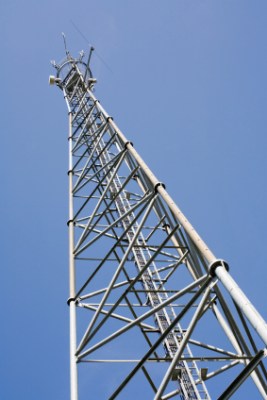Europe’s largest mobile network operators are considering pooling their resources to create pan-European network infrastructure, the FT is reporting. Quoting several people familiar with the situation, the paper says discussions to potentially “unite Europe’s fragmented national markets” were prompted by the European Commission — reportedly keen for more radical options to simplify Europe’s mosaic of telecoms markets to fit its economic philosophy of pushing towards a single market.
The idea of a pan-European network emerged at a private meeting between EU competition chief Joaquín Almunia and the bosses of Europe’s biggest telecoms groups, including Deutsche Telekom, France Telecom, Telecom Italia and Telefonica, according to the FT. The paper says industry attendees left the meeting “intent on exploring the idea” of a pan-European network, adding that mobile network operators are frustrated by a “disjointed European market” that’s making it harder for them to compete.
For European telcos, the issue is the complexity of the regional telecoms landscape — with more than 27 telecoms regulators, and more than 100 carriers operating in the region. Doubtless envious eyes look over the pond to the U.S., with one regulator and four main operators, or China with three.
“The operators expressed a deep sense of frustration and agreed to bring constructive ideas of how a European market could work,” the FT quotes one person familiar with the meeting as saying. “Objections won’t come from Europe, they will be from the [EU’s 27 national] regulators.”
We’ve reached out to the office of Joaquín Almunia, and to Telefonica, Deutsche Telekom, France Telecom and Telecom Italia for comment — and will update this story with any response. A spokesman for Telefonica told TechCrunch the company does not comment on rumour and speculation. Update: TechCrunch understands that discussions between Europe’s telcos on network infrastructure pooling have taken place but are at a very preliminary stage.
The paper notes that Almunia has taken a “tough stance” against national mergers that reduce competition but has apparently indicated he is more open to “cross-border tie-ups” as an alternative way to build a single EU market. It quotes comments he made in December when he said there could be “other ways than mergers to promote efficiency gains among operators, such as network-sharing agreements”.
Since the first meeting between the telcos and Almunia, the FT adds that the idea of creating a “newco” structure to pool network infrastructures (and their associated debt) has also been floated — which could be used on a wholesale basis by all telecoms groups. The vehicle would also be in a stronger position to gain access to public and private funds for building out next-gen networks.
Network sharing between national carriers has been taking place at the EU member states level for years, as a way to reduce the cost of maintaining and upgrading network infrastructure. In the U.K. two network operators, Orange and T-Mobile, went a step further by announcing a merger in 2009 to create the U.K.’s largest single carrier — now owned by EE (formerly Everything Everywhere), a joint venture between Deutsche Telekom and France Telecom.
The expense of operating and upgrading network infrastructure to 4G, coupled with downward pressure on margins thanks to declining ARPU (average revenue per user) and increasing competition from over the top Internet companies means telecoms companies are under pressure to work together more than ever before.
Update: The European Telecommunications Network Operators’ Association (ETNO) has confirmed to TechCrunch that a meeting took place between some of its members and Commissioner Almunia on November 28 — at which the possibility of creating a “single European telecom market” was discussed, as part of a broader discussion about competition in the sector. However, it said its members’ favour market-led consolidation, rather than the creation of a pan-European shared network — to help achieve a single telecoms market and “enable market players achieve scale and be more competitive”.
ENTO added that “the creation of a pan-European shared network was not on the agenda of the meeting and is not on the agenda of ETNO”.
